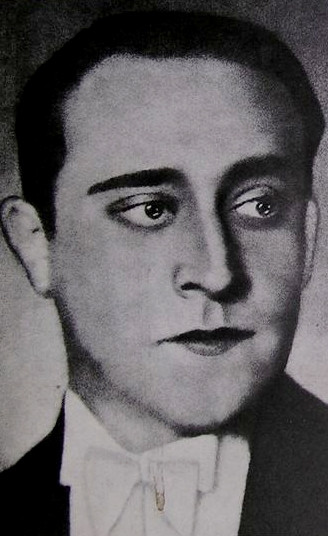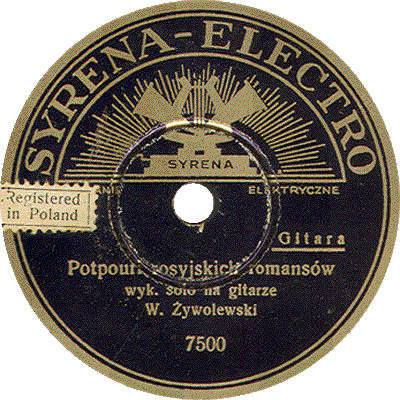13th May 2022 – Shabbat is almost here
And today we will enjoy the glamour of Polish interwars music, with the voice of Adam Aston.
 Hello, I hope you are well. I have decided to recover my photo in this issue. I have a reason to celebrate.
Hello, I hope you are well. I have decided to recover my photo in this issue. I have a reason to celebrate.
The invasion of Ukraine continues. Last Saturday, the Hudaki Village Band picked up their instruments again and played at a charity event with artists from Zakarpattia called 128 – music in the hat. The significance of that moment has been very important to the band, as it was the first time they have played since the invasion began. And the reason to celebrate is this: next month I will meet them. It will be in Poland, in Poznań, at the EthnoPort festival on June 12. If you happen to be there, let me know.
I’m going back to Poland, after about 3 years. And this edition of Music Before Shabbat is going to be dedicated to a Polish artist singing in Polish: Adolf Stanisław Loewinsohn, better known as Adam Aston.
Then, please, spread the word.
About Adam Aston
 dam Aston was one of the most popular Polish interwar singers. For this reason, there is an extensive biography of him on the Adam Mickiewicz Institute website. This website is huge and very interesting and their newsletter is highly recommended. I will make a brief summary of the biography and if you want to know more, feel free to visit the website. I will include some inserts:
dam Aston was one of the most popular Polish interwar singers. For this reason, there is an extensive biography of him on the Adam Mickiewicz Institute website. This website is huge and very interesting and their newsletter is highly recommended. I will make a brief summary of the biography and if you want to know more, feel free to visit the website. I will include some inserts:- Aston was born Adolf Stanisław Loewinsohn, on 17th September 1902 in Warsaw.
- He spent his childhood and youth in Warsaw, where he was taught by his first vocal teacher.
- After volunteering for the Polish army, he returned to Warsaw in 1923, where he would study first law, then dentistry and in 1928 started to work for a liqueur company mainly in sales tasks.
- Aston made his first solo recording, probably for the Beka label, in 1927.
- He tood private singing lessons from 1927 to 1929 with the acclaimed Wacław Brzeziński (you can listen to him, here). Alongside performance, he also studied conducting.
- In 1930 Aston was offered a place in the Chór Warsa (you can listen to them, here). The company recorded many songs for Syrena Electro and for Columbia too.
- In the early 1930s he changed his name for As-ton (Polish for ‘the ace of tone’).
- And it was tango which Aston was renowned for; a genre which had taken Poland by storm from the early days following the declaration of independence.
- In 1932, he was already collaborating with renowned musicians: he recorded the foxtrot Katiusza, with music by Zygmunt Białostocki and lyrics by Andrzej Włast, which appeared on Syrena, Lonora and Columbia. A year later, he sang the classic waltz Bajki (Fairytale), written by famed poet Julian Tuwim.
- In 1933 he recordes Nikodem, a melody by Henryk Wars with lyrics by Ludwik Starski, that we will listen to today.
- He remained a frequent performer for Syrena but also worked for Polish Radio.
- Between 1930 to 1939, it is estimated that Aston produced around 960 sides, mostly for Syrena Electro, but also for Odeon, Lonora-Electro, Parlophon and Colombia under the name Adam Wiński, Jerzy Kierski, or Adam Aston.
- He also recorded in Hebrew under the pseudonym Ben-Lewi, including a rendition of Jerzy Petersburski’s renowned hit To Ostatnia Niedziela as To Ostatni Szabas (The Last Sabbath).
- When war hit Poland at the start of September 1939, Aston was evacuated alongside fellow employees of Polish Radio to Lviv. The Soviet Union allowed artists to tour.
- Yet, when Nazi Germany invaded the Soviet Union in 1941, Aston and his wife succeeded in travelling to Frunze, the capital of Kyrgyzstan, though both nearly died from starvation.
- Then, he got involved in military orchestras of the Polish Army in Exile. During the war he sang in several countries.
- Aston moved to London in 1947, later to South Africa and worked as an agent of a company producing spirits, and later was appointed the director of a paper factory operating in the city.
- In 1959, Aston suffered a heart attack and retired, moving to London permanently in 1960. There, he gave singing recitals and performed in the Polish theatre Polonia, and became a member of ZASP (Association of Polish Stage Artists).
- He rarely gave concerts after the 1960s.
- By the time he died in 1993, aged 90 there was no obituary, and no memorial, and even no plaque at Golders Green Crematorium in Lonson, where his ashes were scattered.
About the song Nikodem
As explained above, Nikodem, is a melody by Henryk Wars with lyrics by Ludwik Starski. There are many renditions, like this one by Tadeusz Faliszewski, or this one by the Jazz Band Młynarski-Masecki, or this one by the Stylowa Orkiestra Taneczna or this one by the Warszawska Orkiestra Sentymentalna.
You can find the lyrics in Polish and in English, here.
 I do not have a specialized source to confirm that it was recorded in 1933 for Syrena. I have not found that data in any database, only in the description of the video on Youtube and other sites that repeat that information.
I do not have a specialized source to confirm that it was recorded in 1933 for Syrena. I have not found that data in any database, only in the description of the video on Youtube and other sites that repeat that information.
Since I did the edition about Syrena Records until now I see that this web is starting to be created and it promises a lot. This other web, StareMelody (old melodies) is linked there and there is a database but the data of the year and label for this recording is missing. In any case, let’s let music talk by itself.
